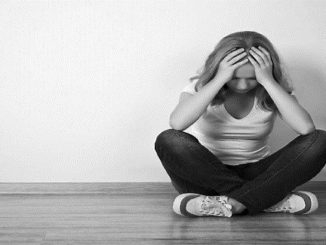College is a place for free expression, free time and free condoms. It’s depicted as one non-stop party, where you travel everywhere with a posse of friends and even enjoy doing coursework and assignments. It’s supposed to be the place where you spend the best years of your life.
For many, however, college can be an overwhelming, frightening experience. Various factors can cause real anxiety for students and in some cases, take over their lives and dictate what their college experience will be. I spoke to Rachel, who was diagnosed with clinical anxiety, about the factors that made her drop out of college in her first year.
“To make people understand anxiety, you need to show them that there is no line. It’s not like if you have this level of anxiety, you’re fine and then if you cross the line you’re clinically anxious,” she said.
“The diagnosis for clinical anxiety is not reaching this line and crossing it, it’s how negatively it affects your life. The same level of anxiety could affect two different people in different ways.”
Anxiety is a broad term, used to generalise several different disorders such as general anxiety disorder, OCD and social anxiety disorder. While anxiety and fear are primitive safety mechanisms, they become a problem if they impair your daily functioning.
Rachel maintains how you cope with anxiety is down to a person’s individual attributes and childhood emotional learning. This idea is backed up by clinical psychologist, Dr. Clare Kambamettu.
“Often, our inherent biological disposition interacts with our early life experiences and relationships and together these can cause a vulnerability to anxiety disorders,” she said.
“The thinking patterns that we develop as children are also important as they can impact on how we deal with stressful life events and thus whether or not we develop a problem with anxiety.”
Counsellor Louise Kelly, is also of the opinion that an anxious disposition can stem from childhood experience and believes anxiety can be contagious, transmitted from parent to child through non-verbal cues.
Analysing childhood events and behaviours during counselling proved pivotal for Rachel in understanding her anxiety.
While she is comfortable talking about her experiences now, it took her a long time to seek help. It wasn’t until she began to display physical symptoms, through panic attacks, that she realised she may have a problem.
“When you’re having a panic attack there are no thoughts, just white noise. Panic and black and white. It’s difficult to look back and remember concrete feelings,” she said. “It feels like all the noise is way louder. You can hear every single person talking and you’re paranoid that they’re all looking at you and you’re searching for someone or something. You’re really just desperately trying to figure out how you get out of this situation.”
So what’s happening in our body when we feel anxious? According to Louise Kelly, it’s all down to elevated levels of adrenaline and cortisol, which are usually released when somebody gets a fright. Once your body registers that you are not in danger, they are brought down to a normal level. However, for people with anxiety they never decrease enough to make you feel at ease.
As this is mainly down to bodily functions, Kelly recommends breathing exercises and meditation to regulate these feelings. For people who are affected by anxiety in a more mental way, such as a person with OCD , cognitive behavioural therapy could be the answer.
Rachel was specifically diagnosed with clinical perfectionism, a branch of OCD, and said it took a long time to find a treatment that worked for her. She said one of the hardest things she had to deal with was ‘coming out’ with her anxiety to family and friends, not just once, but repeatedly until they understood that there was no quick fix to her problem.
Rachel tried various courses of therapy before she found one that felt right.
When therapy doesn’t work the first time, “You convince your family and friends that you’re fine and you go back into a hole. Then a month later you’re even more lost and alone because you reached out for help and it didn’t work,” said Rachel.
“You need to keep asking for help, again and again, and it can drain you, but you’ll eventually find something that works. And when it works, it’s the best feeling.”
Rachel is currently repeating first year and though it mightn’t be the non-stop party of American movies, she is confident this year will be better than the last.
Rebecca Lumley




Leave a Reply